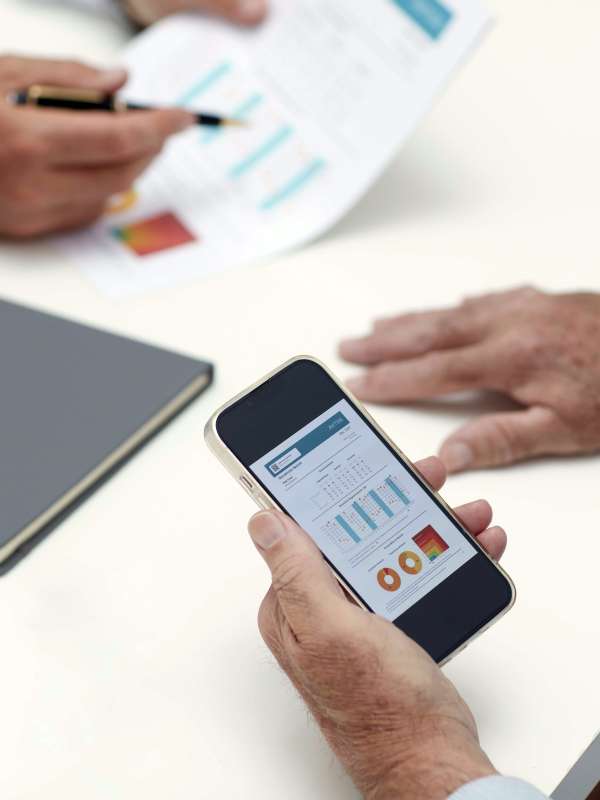High blood pressure, or hypertension, is a prevalent condition that poses significant health risks, including heart disease, stroke, and kidney failure. Systolic blood pressure, the first number in a blood pressure reading, indicates the pressure in your arteries when your heart beats.
Systolic blood pressure becomes increasingly important as we age, given its association with cardiovascular risks. This article explores effective strategies to manage and lower systolic blood pressure, promoting long-term heart health.
Understanding Systolic Blood Pressure
Systolic blood pressure measures the force exerted against artery walls at the moment the heart muscle contracts. A reading above 130 mmHg is considered elevated, with higher numbers indicating increased risk. Unlike diastolic pressure, which can plateau or decrease in older adults, systolic pressure continues to rise with age due to increasing stiffness of the arteries.
Lifestyle Modifications
Lifestyle modifications are foundational steps in the journey towards lowering systolic blood pressure, offering a natural and effective way to enhance heart health and overall well-being.
- Dietary changes: Adopting heart-healthy eating habits can significantly reduce systolic blood pressure. The DASH (Dietary Approaches to Stop Hypertension) diet emphasises fruits, vegetables, whole grains, and lean proteins while limiting salt, red meat, and added sugars. Reducing sodium intake alone could decrease systolic pressure by 5 to 6 mmHg, although this is highly individual and many factors are in play.
- Regular physical activity: Engaging in moderate to vigorous exercise for at least 150 minutes per week can lower systolic blood pressure by an average of 5 to 8 mmHg. Activities like brisk walking, cycling, swimming, and strength training not only reduce pressure but also strengthen the heart and improve arterial health.
- Weight management: Excess weight is a significant risk factor for hypertension. Losing even a small percentage of body weight can have a profound impact on blood pressure levels, with each kilogram lost potentially reducing systolic pressure by approximately 1 mmHg.
- Limiting alcohol: Alcohol can raise blood pressure by several points, and excessive consumption can negate the effects of blood pressure medications. Limiting intake to moderate levels, or avoiding alcohol entirely, is advisable.
- Quitting smoking: Smoking cessation is also crucial, as nicotine constricts blood vessels and elevates heart rate, increasing blood pressure.
- Stress management: Chronic stress can contribute to elevated systolic blood pressure through various mechanisms, including unhealthy coping behaviours like overeating or alcohol use. Techniques such as deep breathing, meditation, yoga, and regular physical activity can help manage stress effectively.
Medical Blood Pressure Management
For some individuals, lifestyle changes alone may not be sufficient to achieve target blood pressure levels. In such cases, medication may be necessary.
Antihypertensive medications
There are several classes of blood pressure medications, each working in different ways to lower pressure. Common options include:
- Angiotensin converting enzyme (ACE) inhibitors
- Beta-blockers
- Diuretics
- Calcium channel blockers
- Angiotensin receptor blockers (ARB).
Your doctor will prescribe medication based on individual health profiles and any pre-existing conditions.
Want a steady stream of tips and insights on how to maintain a healthy blood pressure? Sign up to our newsletter!
Regular Monitoring and Consultation
Managing systolic blood pressure often requires regular monitoring, both at home and through healthcare providers. This enables timely adjustments to treatment plans and interventions to achieve optimal control.
Complementary Therapies
In addition to conventional strategies, certain complementary approaches may offer additional benefits:
- Potassium and magnesium: Increasing the intake of potassium- and magnesium-rich foods can help balance the effects of sodium and support vascular health. Foods like bananas, avocados, spinach, and nuts are excellent sources.
- Omega-3 fatty acids: Found in fatty fish, flaxseeds, walnuts, and supplements, omega-3s can improve heart health and potentially lower blood pressure by reducing inflammation and improving arterial function.
- Herbal supplements: Some herbal supplements, such as garlic and hawthorn, have been linked to modest reductions in blood pressure. However, it’s essential to consult with a healthcare provider before starting any supplement, as they can interact with medications.
The Importance of Individualised Approaches
It’s crucial to recognize that blood pressure management is highly individualised. What works for one person may not be as effective for another due to differences in genetics, underlying health conditions, and lifestyle factors. Working closely with healthcare professionals to tailor a comprehensive plan is the best strategy for lowering systolic blood pressure and maintaining cardiovascular health.
Lowering systolic blood pressure involves a multifaceted approach that includes lifestyle modifications, dietary changes, regular physical activity, stress management, and possibly medication. By adopting a holistic and personalised strategy, individuals can effectively manage their blood pressure, reducing the risk of heart disease and enhancing overall well-being.
Disclaimer: The information in this article is for educational purposes only and not intended as medical advice. If you have any health concerns, please consult with your physician or qualified healthcare provider. Any changes to your diet or lifestyle should be made under medical supervision. The author and publisher are not responsible for any adverse effects resulting from the use or application of the information presented in this article.
Sources
M. Siervo, J. Lara, S. Chowdhury, A. Ashor, C. Oggioni, J. C. Mathers JC. (2015) Effects of the Dietary Approach to Stop Hypertension (DASH) diet on cardiovascular risk factors: a systematic review and meta-analysis. British Journal of Nutrition. 113 (1), 1-15. https://doi.org/10.1017/S0007114514003341
DASH diet – healthy eating that helps lower blood pressure. Patient. https://patient.info/news-and-features/dash-diet-healthy-eating-that-helps-lower-blood-pressure (Accessed November 2024)
F. D. Fuchs, S. C. Fuchs (2021). The Effect of Alcohol on Blood Pressure and Hypertension. Curr. Hypertens. Rep., 23, 42. https://doi.org/10.1007/s11906-021-01160-7
S. Omboni (2020). Smoking and hypertension: what is behind the mask? J. Hpyertension, 38 (6), 1029. https://doi.org/10.1097/HJH.0000000000002423
H. Wang, Q. Li, Y. Zhu, X. Zhang (2021). Omega-3 Polyunsaturated Fatty Acids: Versatile Roles in Blood Pressure Regulation, 34, 10. https://doi.org/10.1089/ars.2020.8108
A. Lipert, I. Szadkowska, W. Matusiak-Wieczorek, E. Kochan (2022). The Effect of Herbal Supplements on Blood Pressure: Systematic Review and Meta-Analysis. Antioxidants, 11 (8), 1419. https://doi.org/10.3390/antiox11081419



